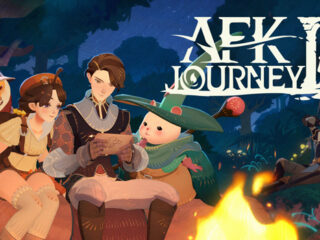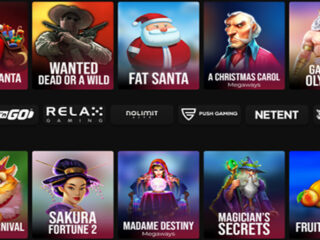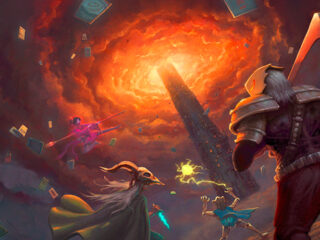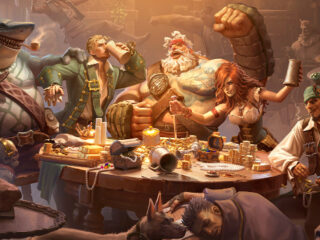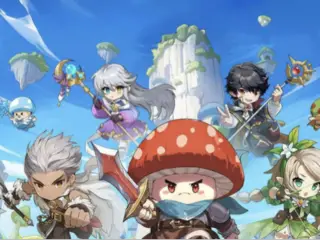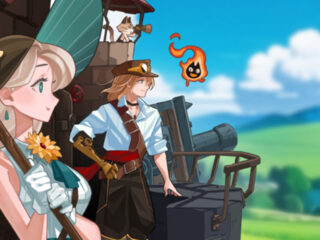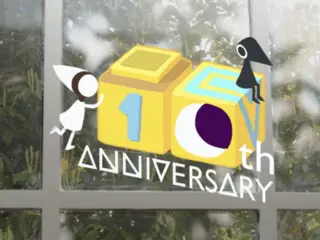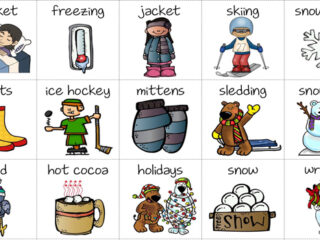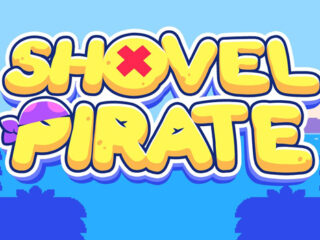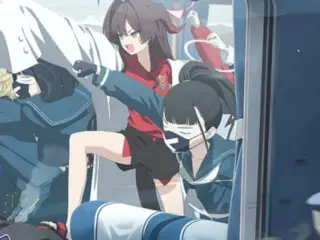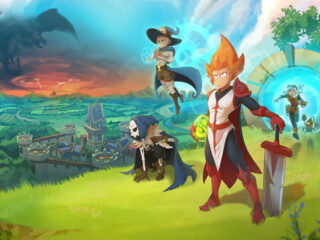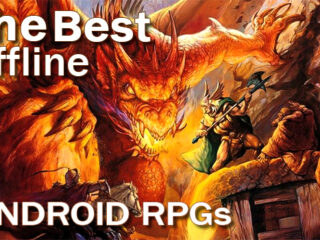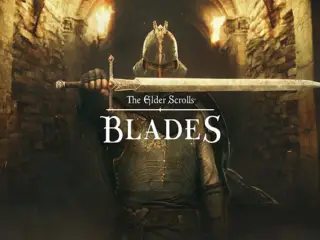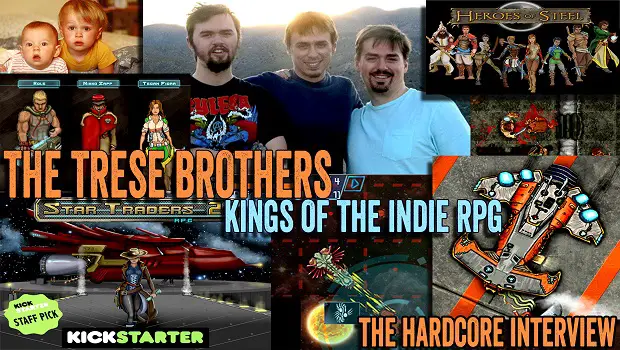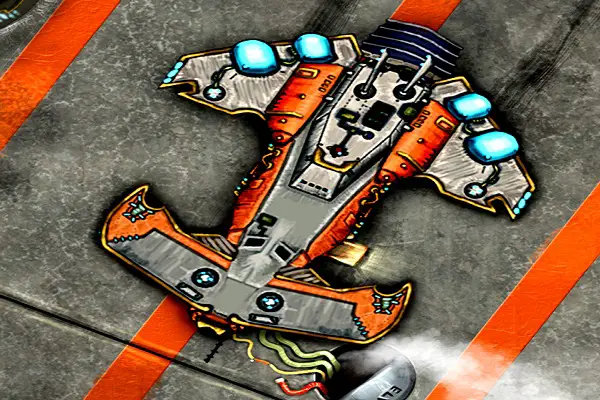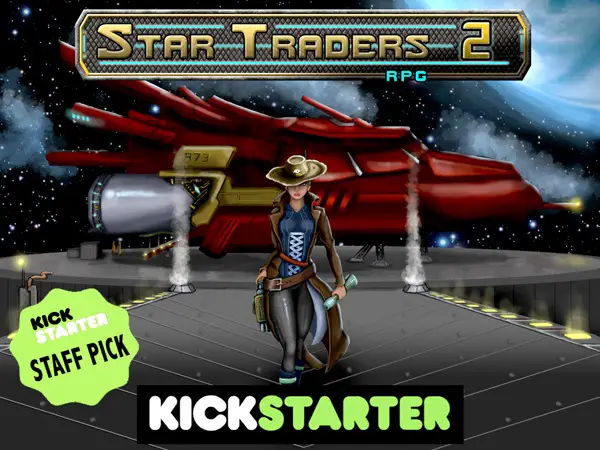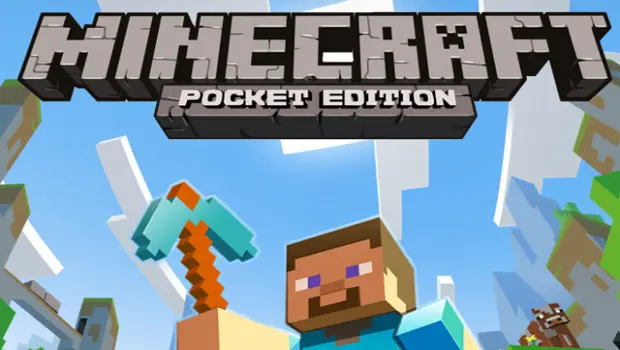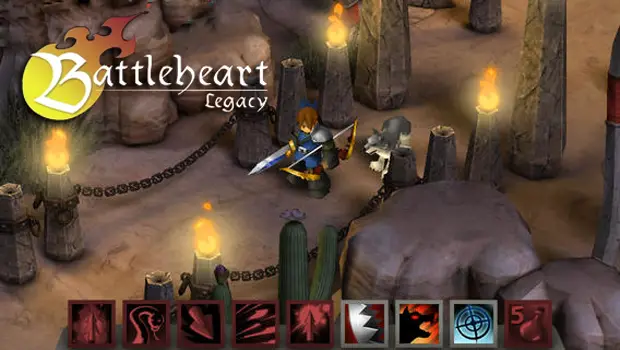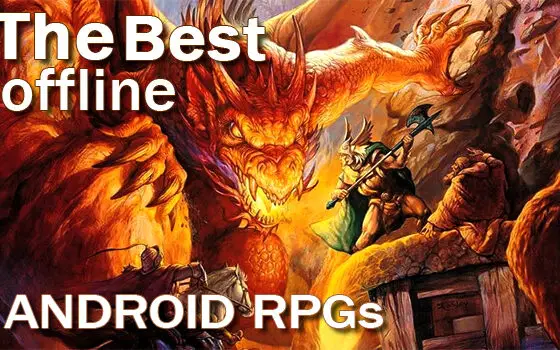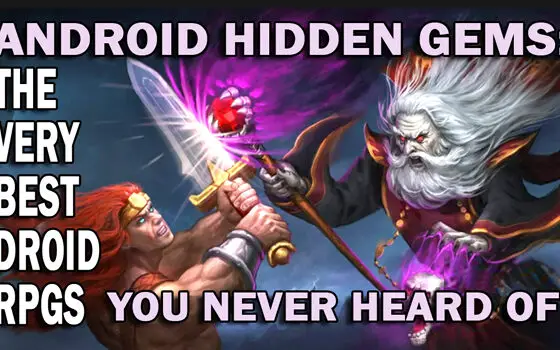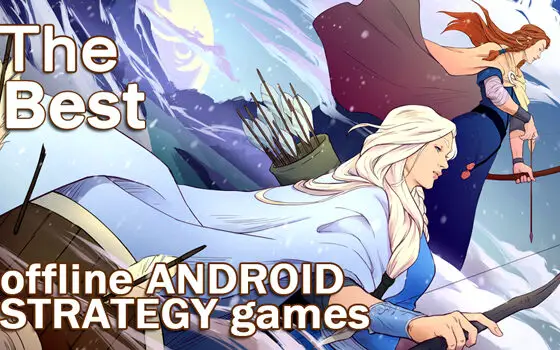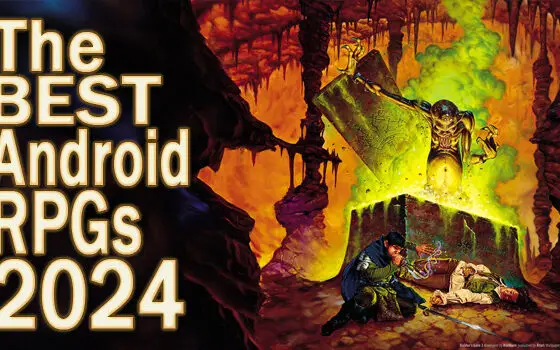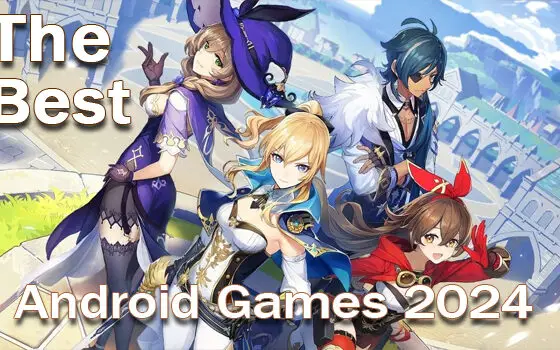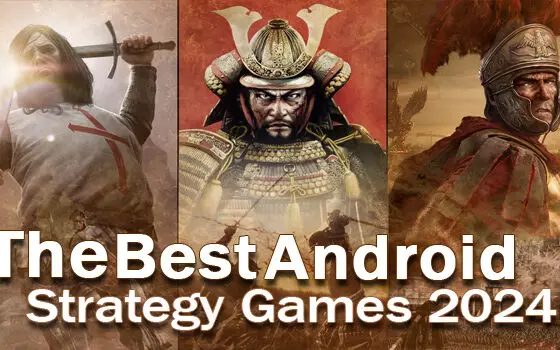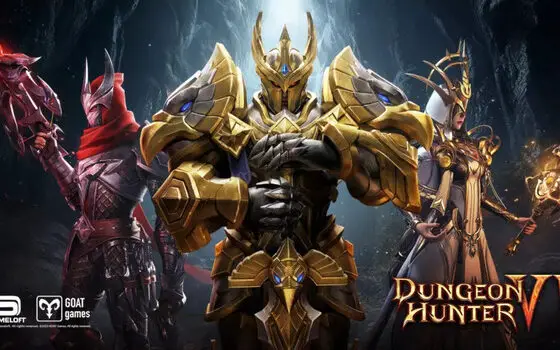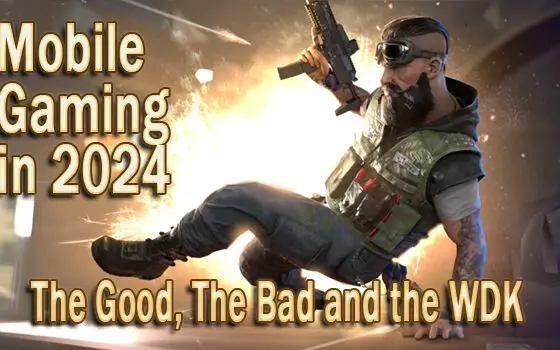Cory and Andrew Trese are perfectly ordinary brothers living in sunny California. They drive, they sleep and eat just like the rest of us. Oh, and they also developed some of the best mobile RPGS and strategy games available. In just a few short years, the Trese Brothers have sent shockwaves through the Android community, developing hit games like Star Traders and Heroes of Steel. So yeah, mostly ordinary.
I was lucky enough to be given the chance to interview the Trese Brothers via email, and ask about their humble beginnings, their upcoming projects, and got the inside scoop on what makes this two-man team tick.
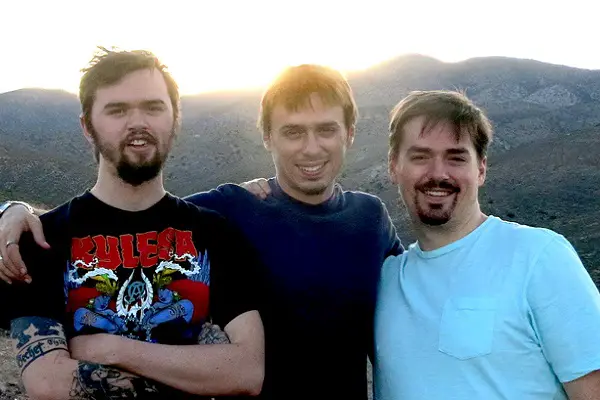
Can you tell us about the origins of the Trese Brothers? How did you guys get started?
[Cory Trese] We both have a long background in software development and had been searching for a way to work together for years. Trese Brothers grew organically from the unexpected success of Star Traders RPG. Star Traders itself is an offshoot of a table-top game Andrew and I created and played with friends. Our path to this point has been full of twists and turns, but we couldn’t be happier spending our days full time making games and talking to gamers.
[Andrew Trese] When did Trese Brothers start? My mother tells it best — Cory visited me shortly after I was born. He crawled up on the bed and looked me over. He rubbed my head and decided I could stay. We’ve been causing trouble ever since.
But truly, we have had the lucky fortune of making and playing games together all of our lives. Our game studio is simply an extension of that life-long passion.
From the depths of space to the vast ocean to dank and dirty caves and dungeons, you guys have quite a range of games under your belt. Can you tell us about the creative process that goes into each game?
[AT] Cory and I must talk about a new game we want to make almost every day. I feel like we are sitting on an ocean of creative ideas. We’re constantly pitching new game ideas to each other and seeing what sticks. But, we only really take on a project that catches both of us up in its net, and really grabs our attention. If only one of us is excited, it’s not likely to get off the ground. If the project has the strength to grab both of us, we talk and brainstorm and about it until we get a clear picture in our head. Then we go for building a playable prototype — the first, playable version that is fun. Once we can reach that, we’ve got a project on our hands.
[CT] We try not to dwell in the planning and pure theory stages for very long on any game. In-depth discussions of mechanics or rules without a playable prototype don’t seem to work very well for us. We need to focus on the gameplay and the player’s experience first. Our creative process is highly iterative, cycling and improving the same prototypes for months while we work to reach a version we’d be comfortable sharing with an alpha testing group.
We already know that you guys are dedicated to bringing the best RPG experiences to the mobile platform, but where does this drive come from? What games inspired you to make the games you make today?
[AT] I think our passion has always been in RPG, strategy and simulation games. Star Traders 4X Empires is our first straight on strategy title, where I before that you could say Templar Assault was strategy and team tactics.
For me, these are the kind of games that are central to Cory and my own shared experiences in creating and playing games. We’ve enjoyed other games, but this is the core for us. It’s what we love, and we aim to create games we love to play, so that is where our focus has always been.
[CT] We spend a great deal of time playing our games. A lot of the work we do centers around improving our current titles, something we’re passionate about, even years after they are first released. A big part of our inspiration comes from making games we love to play.
Is there any other genre you’d be willing to explore?
[AT] RPG and strategy is an amazing type of game, because it can be backed by any genre and almost any type of system. They are very flexible types of games. In terms of genre of the world’s and stories we are telling, I’d love to tackle a Viking storyline or something with ninjas.
So many of the stories that I personally want to tell come from pen and paper gaming sessions from years past. So, for me that makes them very personal, and provides a strong catalog of characters, emotions, and personal challenges to drawn upon.
[CT] I would love to build an RTS game at some point in the future. Something with free pause and lots of timing based mechanics. I’m not sure there are too many genres I wouldn’t be willing to explore, given unlimited resources.
The gaming industry is in the midst of an indie renaissance. What are your views on indie development and the mobile platform?
[AT] It is great to see so many people being creative. The explosion of markets, and especially the mobile platform, has helped creative people — artists, designers, developers — make things and share them with thousands of people. The renaissance is far bigger than just gaming, and it’s all been enabled by platforms like the different app stores that make it easy to share your creation at almost no cost.
[CT] I think it is really exciting to see so many people making games. The distribution channels for games and content have become highly accessible to a large number of people. Google Play costs $25 and the IDE is free. Sure, making games is hard work but anyone can do it AND get hundreds of thousands of people to download it. Games were harder to make in the 1990s and getting them published was a major hurdle.
You recently successfully funded a Kickstarter for your next game, Star Traders 2 RPG. Can you tell us about the pros and potential pitfalls of crowdfunding a game of this nature?
[AT] As a benefit, you find and build your community. We’ve got 1,712 really excited folk on the line who are first in line to play the game, and a lot of them first in line to play the Alpha version of the game. We’re validated to know that our vision resonates with gamers across the board. On the other hand, you’ve got a bundle of commitments and promises — so often made before you know enough about the project to make those promises.
I am extremely proud of how we’ve run our Heroes of Steel Kickstarter and we are now in the final phases of wrapping up the last of our commitments. This isn’t easy, to really check every single box and make sure everyone gets what they were promised, without bending or breaking your promises. You see more and more Kickstarters struggling with that these days, and it’s painful to watch. So, for us, we now have a new list of promises made for Star Traders 2 RPG, and we plan to deliver, even if it takes a year or two!
[CT] Kickstarters give you a great chance to meet new people who might love your games. They can also take 18 hours a day for 30 days to run them well. When you’re running a Kickstarter, you’re not making games or running your business — you’re running a Kickstarter. We often discuss games in terms of “runway” — how much time does this project need to get off the ground. What Kickstarter can do is provide a project with an extended runway, giving your team more time to build and design the game.
We recently posted an article on Gamasutra for anyone considering running a Kickstarter where we shared our best lessons learned and advice for project creators.
Can you tell us about Star Traders 2 RPG and how it expands on the original?
[CT] Star Traders 2 will bring the depth of the original to a whole new level by adding procedurally generated content and a dynamic personality simulator. Every game in Star Traders RPG is ultimately different and we intend to take that concept to the logical maximum — every game in ST 2 will be a completely new experience if you want it.
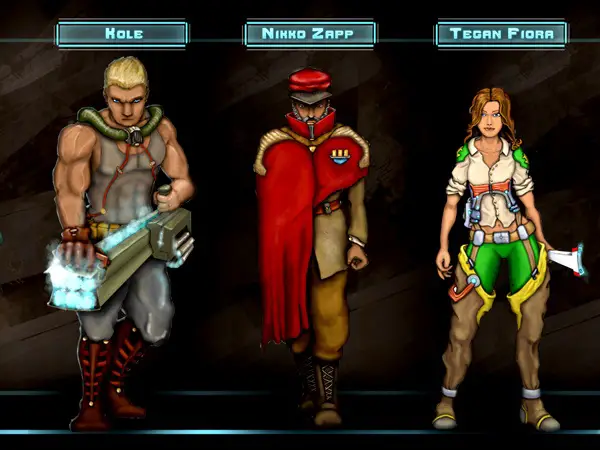
[AT] Star Traders RPG is already such an insanely deep game. The replay in that game is one of the best I have ever seen – I take my hat off to Cory for his creative madness … uh, I mean mastermind. For me, I see Star Traders 2 RPG adding human and dramatic elements to the game. In the original Star Traders, you never get to know your crew other than as a number and the officers you meet are all the same – a wonderful bundle of bonuses. Star Traders 2 RPG will tease out the human aspects of all of these characters and invite you to interact in, imagine, and create episodic stories around them and your Captain.
With the advent of wearables and VR headsets, where do you see the industry going in the next few years? And where do you see yourself in it?
[CT] I’m watching carefully. Big players like Unity are taking the VR space very seriously, and I think everyone in game development should be thinking about it. I’m not sure how well a top-down turn based game would work on the Oculus, however, maybe Andrew’s ninja idea would. I think indie developers have to be very careful about over extending themselves, and VR is clearly one of those places where you can overextend and find the market isn’t ready yet.
[AT] Hah, I’m still wrapping my head around how we’re going to support console controllers — which is something we’re working on actively now. There have been so many different trends like this, which for me have always felt a little more like the fringes of gaming — the Wiimote, the different kinetic sensors (Xbox Kinect) that let you dance or jump around in front of your console, certain people trying to make sword fighting games with special sword controllers. They all sound amazing, but I’m waiting for the one that really grabs the industry and takes it along, instead of just being on the sidelines. Maybe the Oculus Rift is that something, maybe not.
You both have gone above and beyond what anyone would think a two-man team could be capable of. Can you describe the level of effort each game takes to develop?
[AT] I think we’re both hooked on creating and telling stories. Creating something you can see, enjoy, a game that can beat you (its creator!), and something you can share.
We owe a huge thanks to our community. The hundreds of active fans we have who keep helping us, encouraging us, playing our games and giving feedback. Without you, we wouldn’t be here today. We have the pleasure of hanging out with them every day on social media and in our gaming forum and we’re lucky to have the best community in gaming, in my humble opinion.
[CT] Making games the way we like to make them takes an intense level of effort — months of planning and design. I suspect most really great games don’t come together quickly or easily. We have a mantra of “quality over timeline” and we try very hard to apply that. Our two person team takes the concepts and game as far as we can, months of intense focus, but at some point we know we have to release a really fun title and start improving it. Our games have always gotten better when we’re playing them alongside fans and gamers. We need that feedback loop as part of the process, so we rarely release anything that we would call “completely finished.”
You guys have developed for both the iOS and Android. Which do you prefer? Do you find one easier than the other? (And don’t think you have to choose one over the other because we’re Hardcore Droid).
[AT] I’m so very glad to be able to say “neither” now. I bet Cory’s answer will be more accurate than mine, but for me, we’ve achieved a really good place of cross platform heaven and I don’t have to worry about it anymore.
[CT] The development tools that ship with iOS are really fantastic. Apple provides developers an impressive array of profilers, tests and XCode add-ons. However, they only run on my Mac Book where Google’s IDE and toolchain will run almost anywhere. At this point, I think I’m about even on both platforms, hard to find myself saying I like one or the other more. Both of them have quirks — Androids IAB system is a horrible mess and Apple is constantly forcing developers to upgrade the OS to a new release. Personally, I carry an Android phone and so does Andrew. That’s where I spend my in-app dollars every month.
Here at Hardcore Droid, your games often garner high scores from our writers and readers as well as grace our ‘best of’ lists. Out of all the games you’ve developed, do you have a favorite? Which one particularly sticks out in your mind and why?
[AT] For me, Heroes of Steel is a game I play almost every day. It has that addictive quality of the games that inspired it, and I keep coming back to it. The amount of traffic on our forum just discussing different group tactics, strategies, and combos warms my heart. I am no longer #1 on our Google Play leaderboard for Ironman Nightmare (one death, you’re done!) but I have great plans to be king of that hill!
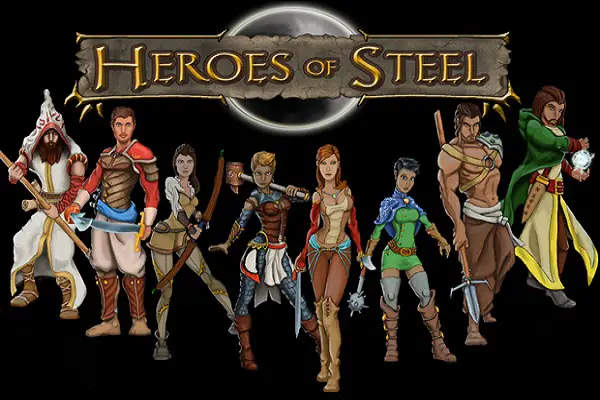
[CT] Star Traders, FTW.
Are there any developers on your radar right now? What are you guys playing now?
[AT] I am really terrible. I only play Trese Brothers games. I know it’s bad, but it’s so good too. We have six of them … what else can I say?
[CT] I have been playing a lot of mobile games. I really enjoyed Cyberlords by HandyGames and played Superior Tactics by Obdurate Software. I love Shadow Blade on my Android TV, a game by Cresent Moon Games. I did not like The Bard’s Tale very much, but I tried it. Warrior Defense by Full Mana Studios is an interesting indie title, although in a crowded genre. Incognito: Space Strategy has recently been improving with developer updates as well.
What words of encouragement would you offer to all the fledgling developers out there?
[AT] I always tell people to make games they love. You have to love your game, otherwise who else could? Then, share it as soon as you can. And take feedback as constructively as you possibly can. Gamers give feedback because they see things you don’t or won’t. Any time you talk to anyone about your game, consider them as a possible life-long fan of your studio. Engage, engage, engage. Talk, be prompt, friendly, professional. Take feedback and act on it. Build a community around yourself; it will sustain you through the difficult days of being a game developer better than anything else.
[CT] Simply put — play your game as much as you can, and take feedback from everyone else who’s willing to play. They’ll see things from a different perspective than you will and that’s invaluable. If you make a game you love to play, you’ll develop a feeling for what is best for the title which will help you decide which feedback fits this game, and which is best used for the next project.
Tell us something about your work that you’ve never told anyone else.
[AT] With the help of our third brother, Martin Trese, we’ve recently released a digital comic that goes along with our game, Heroes of Steel RPG. Martin is a phenomenal artist, and I am crazy jealous of him because I am such a beginner, still after four years of learning.
More specifically, it has made me really want to create a comic. Something simpler, less digital painted, but still to tell a story completely visually would be so much fun. Maybe a web comic. I have no idea where I’d find the time! (Click here to check it out! )
[CT] The very first version of Star Traders that was playable didn’t support the ability to buy more fuel. You simply played until you ran out and then you’d die pretty quickly. The measure of success was how many turns you made it before dying. That version didn’t make it past our personal phones, but it does give some insight into the genesis the game’s difficulty.

